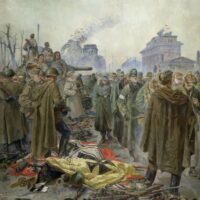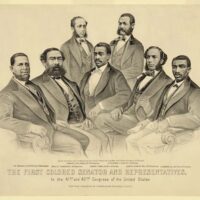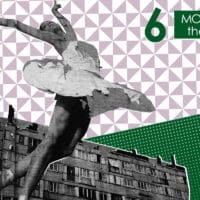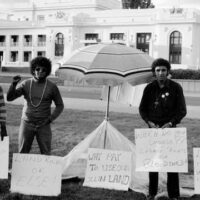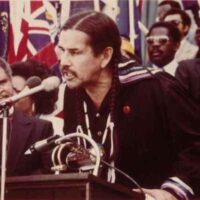-
What is propelling the U.S. into increasing international military aggression?
This article by John Ross (Luo Siyin) was also published in slightly edited form in Guancha as “It’s pointless to count on American ‘kindness’.” Introduction The international escalation of U.S. military aggression over a period of more than two decades is clear. However, even within that framework, the events leading to the Ukraine war represent […]
-
The military situation in the Ukraine
The problem is not so much to know who is right in this conflict, but to question the way our leaders make their decisions.
-
Toward a third Reconstruction: Lessons from the past for a socialist future
Karl Marx wrote to Lincoln in 1864 that he was sure that the “American anti-slavery war” would initiate a “new era of ascendancy” for the working classes for the “rescue…and reconstruction of a social world.”
-
For Washington, war never ends
The formation of the North Atlantic Treaty Organization (NATO) and the rearmament of Germany confirmed that for the United States, the war in Europe was not entirely over. It still isn’t.
-
The erasure of Palestine and the JNF
The JNF is a case study of misrepresentations and fabrications to rationalize and justify profound immorality. There is a great deal of critical history documenting that antisemitism is not inevitable, intrinsic, or constant in history.
-
Russia-Ukraine war began in 2014, not 2022
The war between Russia and Ukraine began much before February 24, 2022-the date provided by the Ukrainian government, NATO, and the United States for the beginning of the Russian invasion of Ukraine.
-
8 years on, the Ukrainian crisis is still the West’s fault
Political scientist John Mearsheimer stated that there was only one solution to the Ukrainian crisis: the West should “abandon their plan to westernize Ukraine and instead aim to make it a neutral buffer between NATO and Russia.”
-
Crimean War wasn’t “collective security”
Eric Lee’s latest column (2 March) contains the occasionally repeated claim that Marx supported the Anglo-French forces in the Crimean War (1853-6).
-
When did the Ukraine War begin?
Viewing the Ukraine war as starting with the current Russian invasion leads to very different conclusions than if you consider that the starting point of this war was the 2014 U.S.-orchestrated coup in Ukraine. The coup, which had elements of an authentic popular revolt, has been used by outside powers to pursue geopolitical ends.
-
Ukraine as the ‘Geopolitical Pivot’: The U.S. Grand Strategy 1991-2022
As we write these notes at the beginning of March 2022, the eight-year limited civil war in Ukraine has turned into a full-scale war. This represents a turning point in the New Cold War and a great human tragedy. By threatening global nuclear holocaust, these events are also now endangering the entire world. To understand the origins of the New Cold War and the onset of the current Russian entry into the Ukrainian civil war, it is necessary to go back to decisions associated with the creation of the New World Order made in Washington when the previous Cold War ended in 1991.
-
America defeats Germany for the third time in a century
The question to ask is what today’s New Cold War is trying to change or “solve.” To answer this question, it helps to ask who initiates the war. There always are two sides—the attacker and the attacked. The attacker intends certain consequences, and the attacked looks for unintended consequences of which they can take advantage. In this case, both sides have their dueling sets of intended consequences and special interests.
-
The U.S. is preparing war with China and Russia at the same time
In the strategic vision of the U.S., Russia should be disarmed to become part of Europe as a “sidekick” and a bridgehead to contain China, the “more dangerous enemy” as Kissinger described it.
-
The Nazis among us: Heidegger and the Hideous
Martin Heidegger isn’t a philosopher that progressives are likely to consider worthwhile reading. After all, he was an anti-Semite, a follower of Hitler, and most hideous of all, someone who likened the mass extermination of human beings to the excesses of factory farming.
-
Ballerinas on the Dole with Colleen Hooper
In this episode, we talk with Colleen Hooper (@hoopercolleen), assistant professor of dance at Point Park University. Hooper’s 2017 article in the Dance Research Journal, titled “Ballerinas on the Dole: Dance and the Comprehensive Employment Training Act (CETA), 1974-1982,” is the subject of most of our conversation.
-
Historicizing Inflation and Price Controls with Andrew Elrod
Andrew Elrod joins Money on the Left to discuss the political economy of inflation and price controls, past and present. Elrod holds a Ph.D. in History from the University of California, Santa Barbara and is presently Research Specialist at United Teachers Los Angeles, a 36,000-member labor union. In our conversation, Elrod overturns one of the […]
-
Radical Land Reform in Venezuela: A Conversation with Juan Carlos Loyo (Part I)
Chávez’s agriculture minister talks about the revolutionary changes in land tenure that took place under the former president.
-
We make the railroad; the railroad makes us
In 1947, thousands of youth brigade volunteers from around the world joined their Yugoslav comrades in the hills of Bosnia to build a railroad. As the most popular song from the construction sites put it, not only were these activists making a railroad, but the railroad made them.
-
Celebrating 50 years of the Aboriginal Tent Embassy
The longest protest for Indigenous land rights, sovereignty and self-determination in the world, the Aboriginal Tent Embassy, located on Ngunnawal land in Canberra, will mark its 50th anniversary on 26 January. Established by Aboriginal activists to demand land rights, the Embassy has been a key site for the struggle for Indigenous rights ever since.
-
Damn hard work
Clyde Bellecourt, Neegawnwaywidung (1936–2022)
-
State archive glitch reaffirms Israel’s genocidal intent
Recently unearthed statements from Israel’s founders endorsing ethnic cleansing and violence during the Nakba will only be shocking if you are not familiar with the long history of Zionist leaders and thinkers showing genocidal intent towards Palestinians.


